Covid shots have saved Millions of lives. Miracle or Myth?
Four years later people are still convinced that the Covid shots have saved millions of lives. I disagree. This is a review of my position.
I often consult my wife about what I should write about next. When I told her about what I was planning with this piece, she shook her head. “More vaccine stuff? You said you were done with this topic. You said that people were tired of reading about it.”
She’s right. I did say those things. However after yet another encounter with people who disagree with me I thought it would be useful, in the interest of being rigorous, to remember how I arrived at my conclusions. Hopefully this may aid you the next time you are in a conversation with someone who believes the Covid-19 mRNA shots were a miracle of modern medicine…
I met a charming couple from Scotland in their 70’s at a New Year’s Eve party this week. I asked them how people in their community view what is happening in America right now.
“If you are talking about Trump, we all think he is a terrible person who should never be in a position of power. It’s disappointing and shocking that so many of you trust him to lead the your country. How do you feel about him?”
I said that I don’t trust politicians. It doesn’t matter what party they represent or what they promise on the campaign trail. However President Trump has sided with RFK Jr. around topics I happen to know something about. I’m hopeful that public health will improve—if promises are kept and Bobby is confirmed as the head of the HHS.
It became clear that I was probably the first person with medical training they have ever encountered who thought Kennedy was advocating for sensible changes, especially around the regulation and testing of vaccines. This is probably why they were willing to hear me out for a minute or two.
I gave them my “elevator talk”—a brief synopsis of my position and how I came to my conclusions. The Pfizer vaccine trial results were suspicious from the start. The “vaccines” were not adequately tested for safety. My numerous encounters with people who believed they were seriously injured from the jab. The CDC’s refusal to investigate the hundreds of thousands of reports of injuries in their own reporting systems, etc., etc.
They listened politely, shrugged their shoulders and said,
“People were dying. We had to do something. The Covid shots have saved millions of lives.”
They summed up the mainstream position perfectly. What began as a miracle of modern medicine that provided 100% protection for you and your grandmother eventually became an imperfect measure that didn’t live up to the initial hype. If you were vaccinated, you could still get Covid. If you were vaccinated, you could still transmit the disease to others. If you were vaccinated, you could have a rough time with rare side effects. The mainstream has acknowledged all of these things, but in the end, the shots did far more good than harm. That’s something we can be certain of.
It was turning into a conversation I have had dozens of times over the last four years. This one went exactly as expected. Even though this is a scientific topic that should be grounded in reproducible data, the conversation will almost eventually become emotional or political or both.
I think I have gotten better at these kinds of exchanges. There’s only one strategy that has a chance of not ending up with both parties agreeing to disagree. Don’t preach. Ask questions.
“Why do you believe that the shots have saved millions of lives?”, I asked.
Of course their answer was predictable. They were jabbed and they survived Covid. Everyone they knew had the same experience. To their credit they were able to see that their isolated experiences should not be used to extrapolate to everyone else’s. They quickly got to the real reason. They trusted the doctors and scientists that make our public health policy. The pandemic was over. Fewer lives would have been lost if more people trusted the experts.
They never asked me why I disagreed. I wasn’t offended. Why should my experience invalidate theirs? I was another rogue physician who believed he was right and those to whom we entrust public health were wrong. While they could acknowledge they never looked at it, the data was on their side, not mine.
Defending my position requires getting into the weeds—impossible to do at a cocktail party while sipping bubbly. Nevertheless, I find it helpful to regularly review why I believe what I believe. That’s what I intend to do now. Please leave your comments, especially if you disagree with my logic…
The Data is F****d…
The data to which they and many others, including the overwhelming majority of the physicians I speak with, are speaking of is vaccine effectiveness. Vaccine effectiveness boils down to the reduction in risk of a bad Covid outcome if vaccinated compared to being unvaccinated.
People who were vaccinated had a lower chance of being hospitalized or dying from Covid. That’s what we have been told. But is it true?
The problem with calculating vaccine effectiveness, i.e. the benefit a vaccine offers to a population, is that there are differences between people who choose to vaccinate and those who don’t. These differences have significant impact on how a disease like Covid-19 will impact them.
For example, it is well accepted that young, healthy individuals are more likely to skip the shots, while older folks with co-morbidities are more likely to get them. It should be obvious that if the vaccine provided neither benefit nor harm, the unvaccinated would do better because they are younger and healthier. This would skew vaccine effectiveness negative, not because the shots were harmful but because those who got them were less healthy to begin with.
On the other hand, many younger, active people who were professionally employed had to get the shots to keep their job, whereas less employable (less educated or disabled) people were not subject to the same pressure to vaccinate. This would skew effectiveness positive.
I had serious doubts that the shots were helpful from the beginning because of the vaccine trial results (see below). I thought that this would become clear as more and more people took the Covid shots. It didn’t. While people like Drs. Fauci and Walensky initially confirmed that the shots were extremely protective at the beginning of the vaccination campaign, the CDC never published the incidence of Covid infection/hospitalizations/deaths by vaccination status for more than a year. We were forced to trust them and the limited studies they cited.
Instead the public was being fed stories like this one from the Denver Post:
Unless you are paying attention it would seem like the vaccine was 96% effective. But that isn’t what the headline is saying. It’s saying that during the first six months of 2021 96% of Covid-19 deaths and hospitalizations were among unvaccinated. The problem is that for the first six months of 2021, most of the people in Colorado were unvaccinated to begin with. I downloaded the data from the Colorado DPH myself and plotted it:
As you can see, most of the deaths occurred in the first two months of 2021 when the vast majority of the Colorado population hadn’t been vaccinated. Given the uptake of the shots over the six months and the distribution of deaths temporally, if the shots provided zero benefit 83% of the deaths would have occurred in the unvaccinated.
It’s a clear example of the kind of pro-vax propaganda the public had been subjected to from the jump. The data which purportedly supported excellent vaccine effectiveness was not available or suspect to begin with.
By the fall of 2021 the CDC was already urging the vaccinated to get boosted because it was clear that effectiveness was “waning” with regard to infections. Nevertheless, the CDC was still not making the raw data available to the public. However, the UK Health Security Agency (UKHSA) was.
In this stunning report released in September, 2021, vaccinated populations over the age of 40 were getting Covid-19 more frequently than the unvaccinated (page 18):
Of course, there could be many reasons for this. The stats are age stratified, so a big confounder is eliminated. The UKHSA explained that the vaccinated may be engaged in more risky behavior which put themselves at greater risk for getting Covid. It’s possible. It’s not very plausible. People who refused the shots weren’t huddled in their homes afraid to expose themselves. They were often the ones that believed that Covid wasn’t that big a threat to begin with.
The UKHSA also suggested that the unvaccinated were more protected because they were more likely to have already been infected with Covid. It was a quiet nod to natural immunity. However if that were the case, infection rates would have equalized as time went on, because the vaccinated were coming down with Covid more frequently.
Is that what happened? Nope. Subsequent reports from the agency confirmed that things were getting worse for the vaccinated. Six months later this is how it looked:
If you were over 18 in the UK, the chance that you would get Covid was anywhere from 3 to 5 times higher if you were vaccinated. The UKHSA decided to stop publishing infection rates by vaccination status after March, 2022.
Why would UK data demonstrate a much greater risk of Covid if vaccinated while the CDC didn’t? One of these agencies wasn’t being completely transparent or honest.
By this time the CDC had already dropped the idea that the shots could prevent Covid-19. It was about hospitalizations and deaths. Though the experts once thought the shots were 95% effective in preventing symptomatic Covid, the public was reminded that it was always about flattening the curve. The mRNA products were delivering on this outcome, right?
I eventually gave up on the CDC. There was no reason to trust any of their PSAs or their data. I, like many others, looked across the pond to the UK for more reliable numbers. Early in 2022 their Office of National Statistics published the metric we were looking for: All Cause Mortality (ACM) by vaccination status.
All-cause mortality offers a view of the health of groups of people unadulterated by differing opinions around the cause of deaths/hospitalizations or severity of disease.
If the vaccines were keeping people alive the mortality rates should be lower in the vaccinated, right? This is when I became aware of an Australian scientist named Susan Oliver who was making a name for herself explaining to the lay person why the authorities were right and people like Dr. John Campbell, once vaccine proponent turned skeptic, could be easily debunked.
In this video she is using the ONS ACM data to debunk the idea that people are dying from the Covid shots. Her point is that if mortality rates are higher in the unvaccinated, the shots must be safe. That is not necessarily true for reasons explained below. I thought her analysis was fascinating primarily because of the absence of rigor or logic in her arguments.
She summarized the ONS data into a single graph:
The vertical axis is deaths per 100,000 person years. The mortality rate among the unvaccinated appears to be 2.5 times higher. (EVER = vaccinated at least once)
Over the course of the pandemic after the mRNA products were deployed the age standardized all cause mortality was significantly lower in the vaccinated population, at least in the UK. This should silence all the vax skeptics, right? That’s how Susan Oliver saw things.
The problem here is that although using age adjustments is helpful in attempting to compare two heterogenous populations, it can also lead to spurious conclusions. If we simply looked at the mortality rates between the vaccinated and unvaccinated, the number of deaths divided by the number of person-years in each group, i.e. unstandardized rates, we would get something much different:
You were actually more likely to die from all causes if vaccinated. The problem is that this was not due to the vaccine, it was due to the fact that the vaccinated population was significantly older and their mortality rates were much higher to begin with. So what is really going on?
The ONS actually published data that was age stratified so that comparisons can be made between individual age groups, eliminating the age confounding. Oliver refrained from doing this. If she did she would have arrived at this:
In the graph above I have normalized the mortality rates to that of the vaccinated. In other words, if the unvaccinated mortality rate (blue) was equal to the vaccinated (red) it would equal one (1).
It seems that no matter the age group, the mortality rate is higher in the unvaccinated. Apparently a significant survival benefit is offered by the vaccine no matter how old you are.
Though it appears that Covid vaccine skeptics are wrong and Oliver is right, we have to look more closely. While we have eliminated the major confounder, age, by looking at age stratified data, we still have not compensated for other confounders: overall health, education, affluence, etc. between the two cohorts. The ONS data does not take any of these things into account. There is no way to eliminate these factors from the raw data.
However, something very peculiar emerges when we examine the mortality rates of the vaccinated over time:
In the graph above, the blue line is the mortality rate in each age group over the course of the fifteen months of reporting of those recently (within 21 days) vaccinated with the first dose compared to that of those who are over 21 days out from their first jab. The rates are normalized to the mortality rate of the unvaccinated in each age group.
What’s going on here? There is a clear increase in mortality three weeks after getting the first shot. Why would a safe and effective vaccine increase your risk of dying in three weeks? There aren’t any confounders. We are looking at the same population: the vaccinated.
What happens to the vaccinated after the second shot?
Here we are comparing people who recently received their second dose (blue) to those greater than six months out (red). In some age groups the mortality rates are four to five times higher after six months. This is a clear indication that the shots are killing people.
But is it?
Once again we must dig deeper. Watch what happens when we plot the mortality rates, by age group, among the unvaccinated over time:
Why were mortality rates among the unvaccinated spiking just a few weeks after the shots came out? Look at the time at which mortality peaked in each age group. If deaths among the unvaccinated were occurring primarily from the winter wave of Covid they should have been happening at the same time. They weren’t. They were staggered. What else was staggered? Answer: the availability of the Covid-19 vaccine to the British population (older age groups were eligible earlier).
We now have a reasonable hypothesis for why there was a big jump in mortality among the unvaccinated at the same time the vaccines became available. Deaths among the recently vaccinated were being misclassified as unvaccinated deaths. Furthermore, deaths among those who recently received their second dose were grouped with those who were greater than three weeks out from their first dose. This is why the mortality rates in people who were jabbed recently were so low and why the mortality rates who were weeks or months out from a dose were so high.
If the ONS weren’t doing this, how then could they explain why mortality rates jump, sometimes by a factor of four or more, weeks or months after getting jabbed? Either they are fudging the data or the shots are increasing the risk of death after weeks or months.
The misclassification of deaths explains how the mortality rates in the unvaccinated have been exaggerated. Hat tip to Norman Fenton, et al for exposing this.
Conclusion: there is no reliable “official” data.
The Pfizer Trial
If we cannot rely on vaccine effectiveness data from our trusted agencies, where then can we turn? We must look at the vaccine trial that spawned the world-wide vaccination campaign four years ago. Why were the experts so sure that these new products were so effective?
A vaccine trial, when conducted properly, offers much better information about how good the vaccine is because outcomes are measured in two cohorts that are properly matched. In other words, we don’t have to deal with confounders. A vaccine trial tells us what the efficacy of the vaccine is, not the effectiveness.
The Pfizer adult trial conducted in the summer and autumn of 2020 concluded that their mRNA formulation had a 95% efficacy in preventing symptomatic Covid-19, at least during an average observational period of six weeks. This is because there were 170 participants in the trial that came down with Covid-19, 162 of them were unvaccinated compared to only 8 who got the experimental shots.
Prima facie, this statistically significant outcome seems like robust evidence that the shots would work, and, if given to a few billion people, could save millions of lives. The problem with the results was actually brought to the FDA’s advisory committee (VRBPAC) in a memorandum (page 41) submitted prior to the authorization meetings by Pfizer themselves.
Pfizer did not test every participant that came down with Covid-19 symptoms. This was a stunning admission that should have resulted in stern inquiries from the FDA. Pfizer powered their trial so that a statistically significant efficacy could be demonstrated while allowing for the detection of less common adverse events.
The vaccine manufacturer enrolled over forty thousand participants for a short period of time, expecting that a reasonable number of people would come down with Covid-19. Those that did should have been treated with extreme interest.
Pfizer admitted that over 3,400 participants were suspected of having Covid-19 based on their symptoms but were never tested. This represents a pool of outcomes that outnumber the confirmed cases by 20 to 1. Unless they were all tested for Covid-19 there is absolutely no way that Pfizer could make any claim about the efficacy of their formulation.
It leads to further questions. Why didn’t they test them? Why didn’t the FDA inquire further? How many people who had symptoms of Covid-19 tested negative? How did they decide who they were going to test?
The last question is particularly salient. As I explained in one of my first articles, there is some strong evidence that the Pfizer investigators were unblinded: they knew which participants got placebos and which got the mRNA shots. It’s very easy to make a useless shot seem like it confers 95% efficacy if the investigators are unblinded: just test twenty times more placebo recipients than those who got the vaccine.
If we were to assume that all of the 3,400 people suspected of having Covid actually did have Covid, the vaccine had a marginal benefit at best because the placebo recipients outnumbered the vaccine recipients by only approximately 9:8.
On the other hand, if most of the controls in the suspected group had Covid-19 and the vaccinated didn’t, it would support the idea that the Pfizer vaccine had remarkable efficacy with very high statistical significance. It would, however, lead to another interesting question: why were those who received the Pfizer shots so much more susceptible to something else? Something that clinically presented exactly like Covid-19?
The point here is that these are the kinds of questions we would expect our regulators at the FDA to ask of those seeking to license their product.
Conclusion
If I were to regard my own position with healthy skepticism, I cannot be certain that the Covid shots had no benefit because I have to rely on our agencies of public health for the data required to assess vaccine effectiveness.
However I can conclude
These agencies have not been transparent or timely with data that only they have access to
These agencies have been misrepresenting data
The regulatory agencies were derelict in their duty to properly evaluate trial results from the very beginning
Legacy media is complicit in exaggerating the safety and benefit of the mRNA shots
These are the chief sources that decree the Covid shots are life-saving. Why should we believe them?





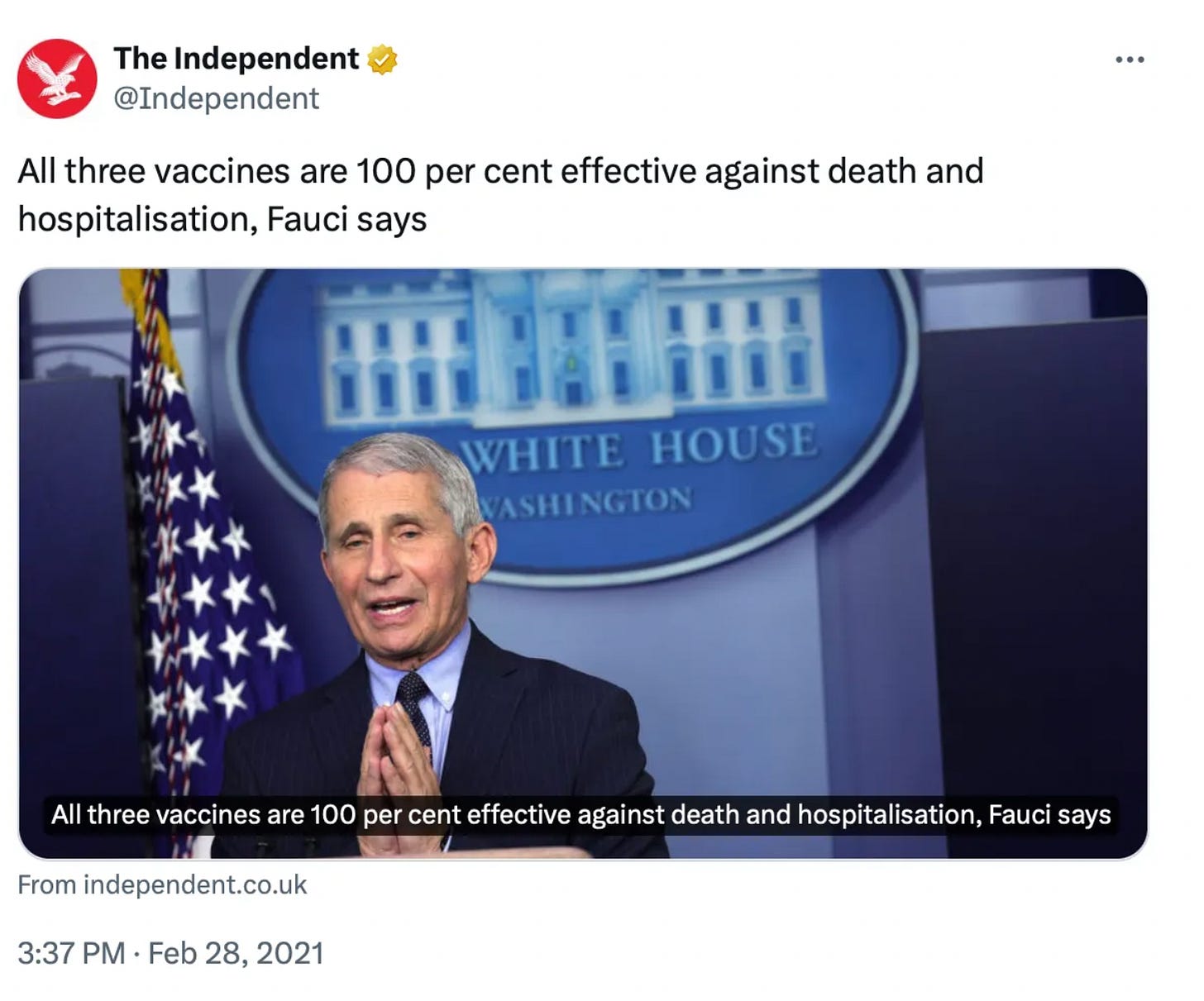
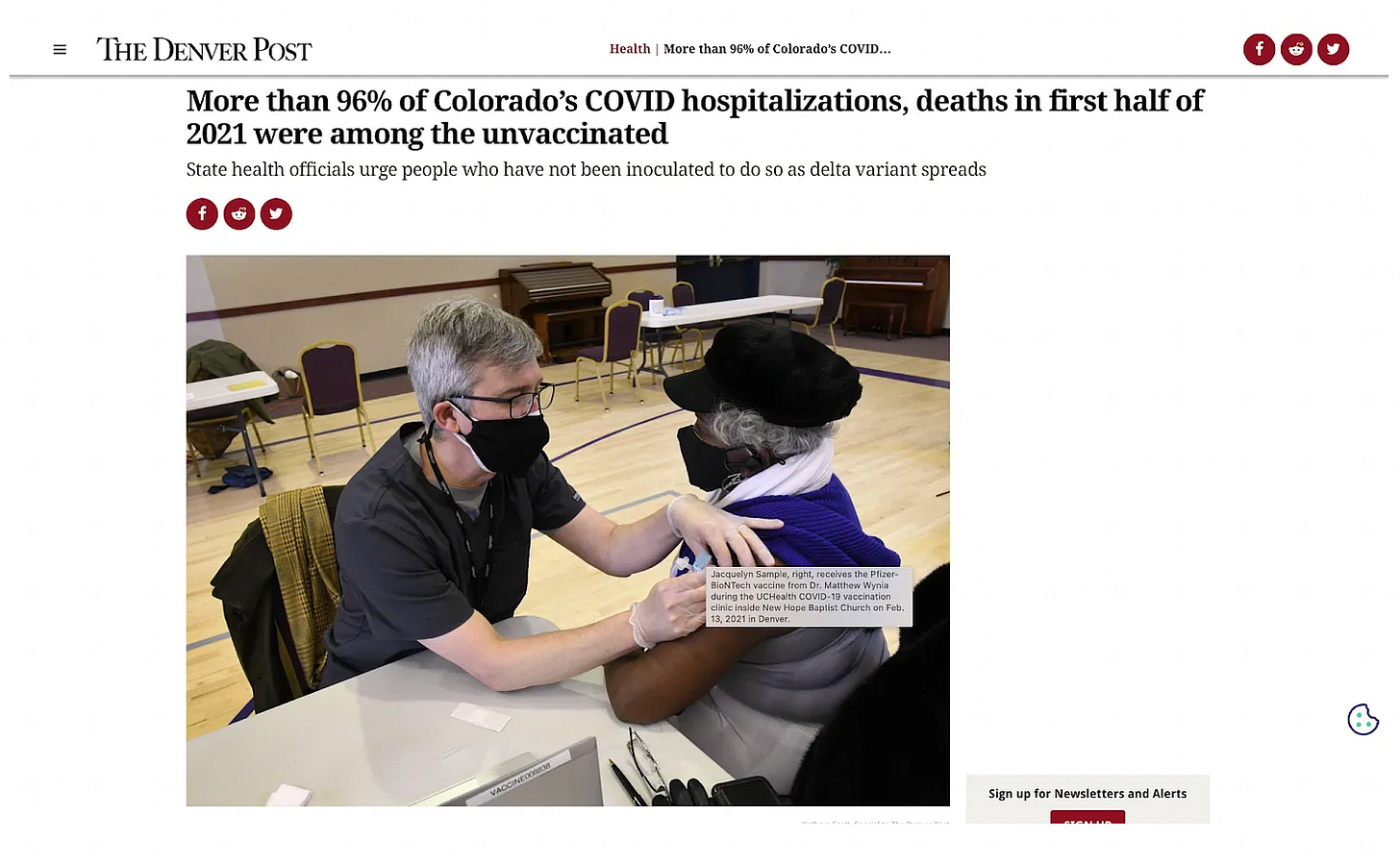
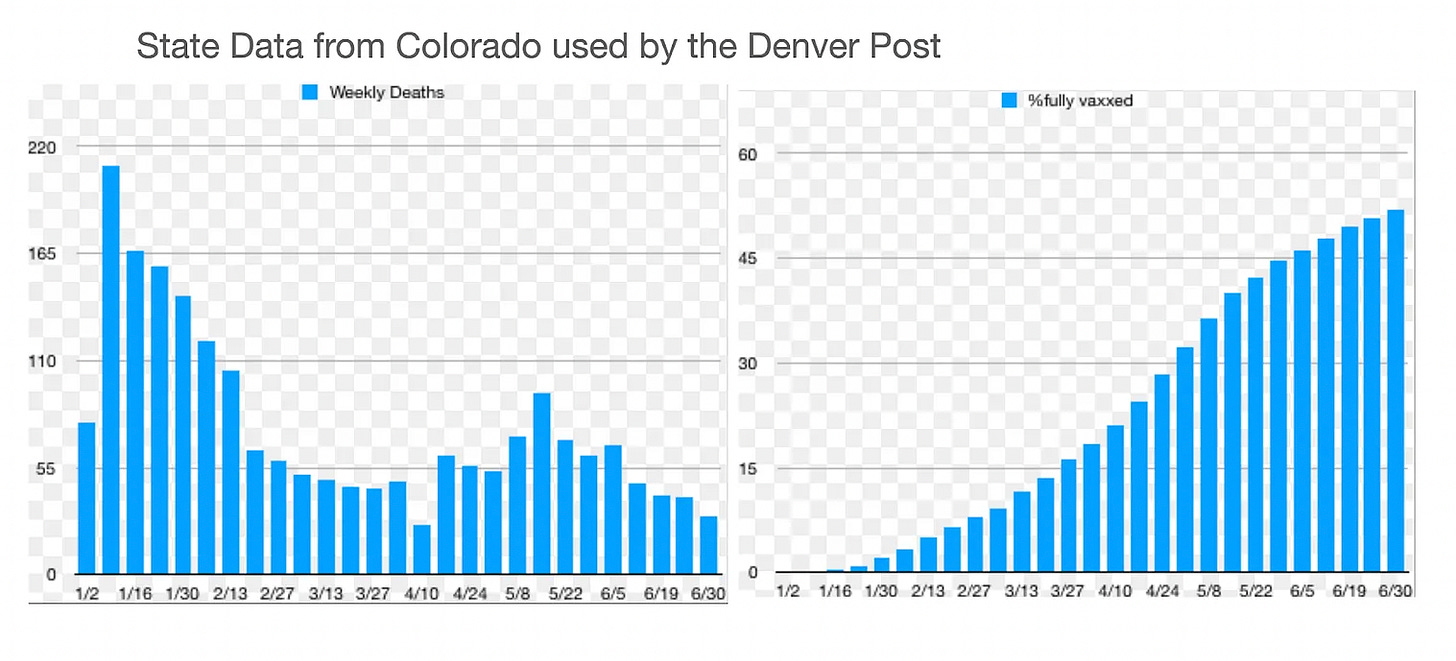
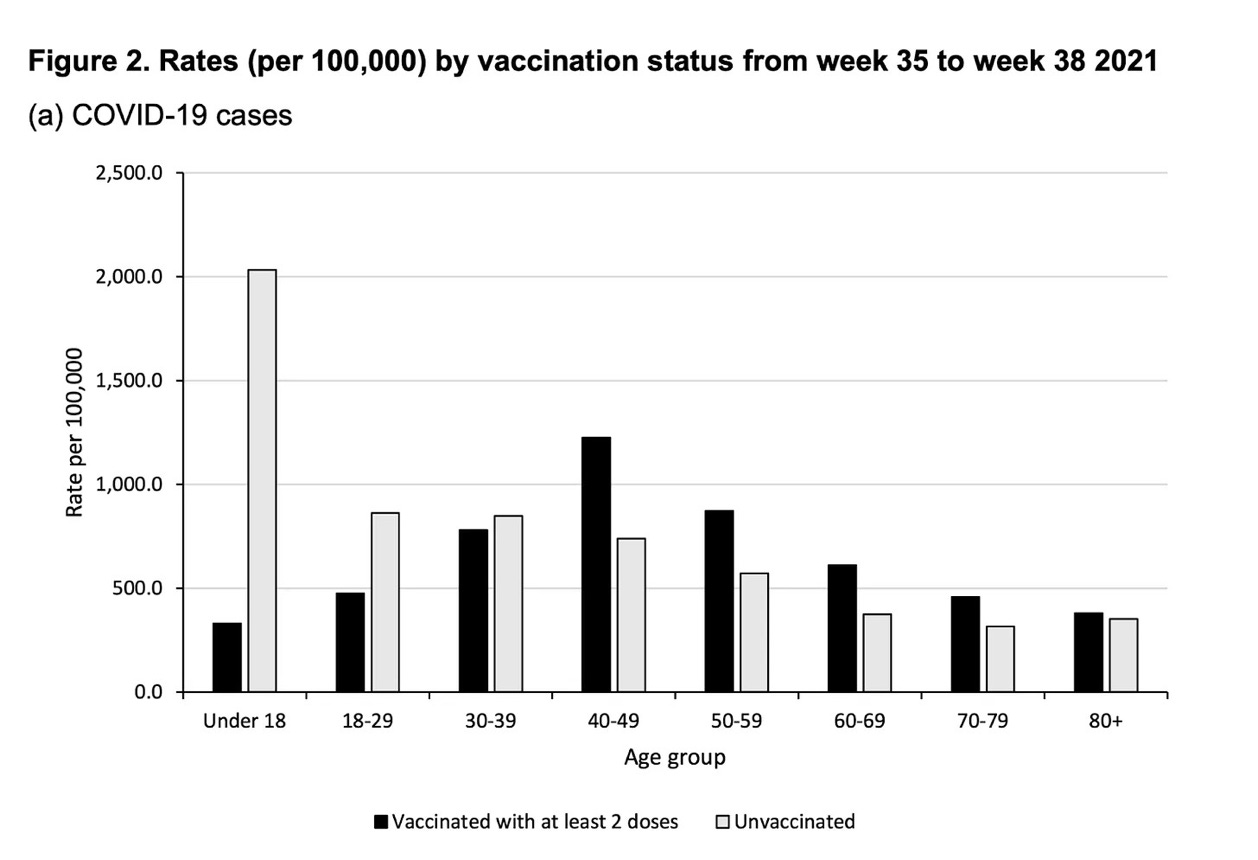
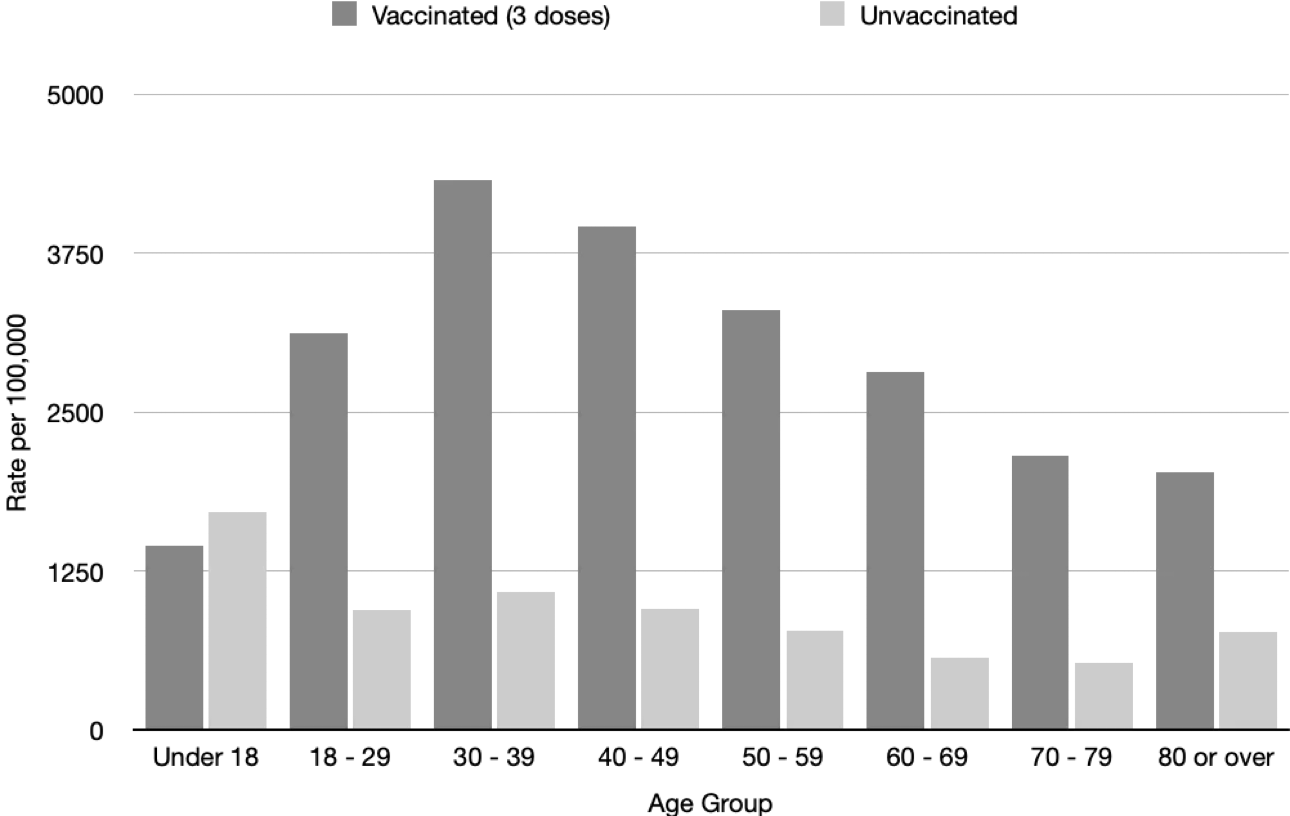
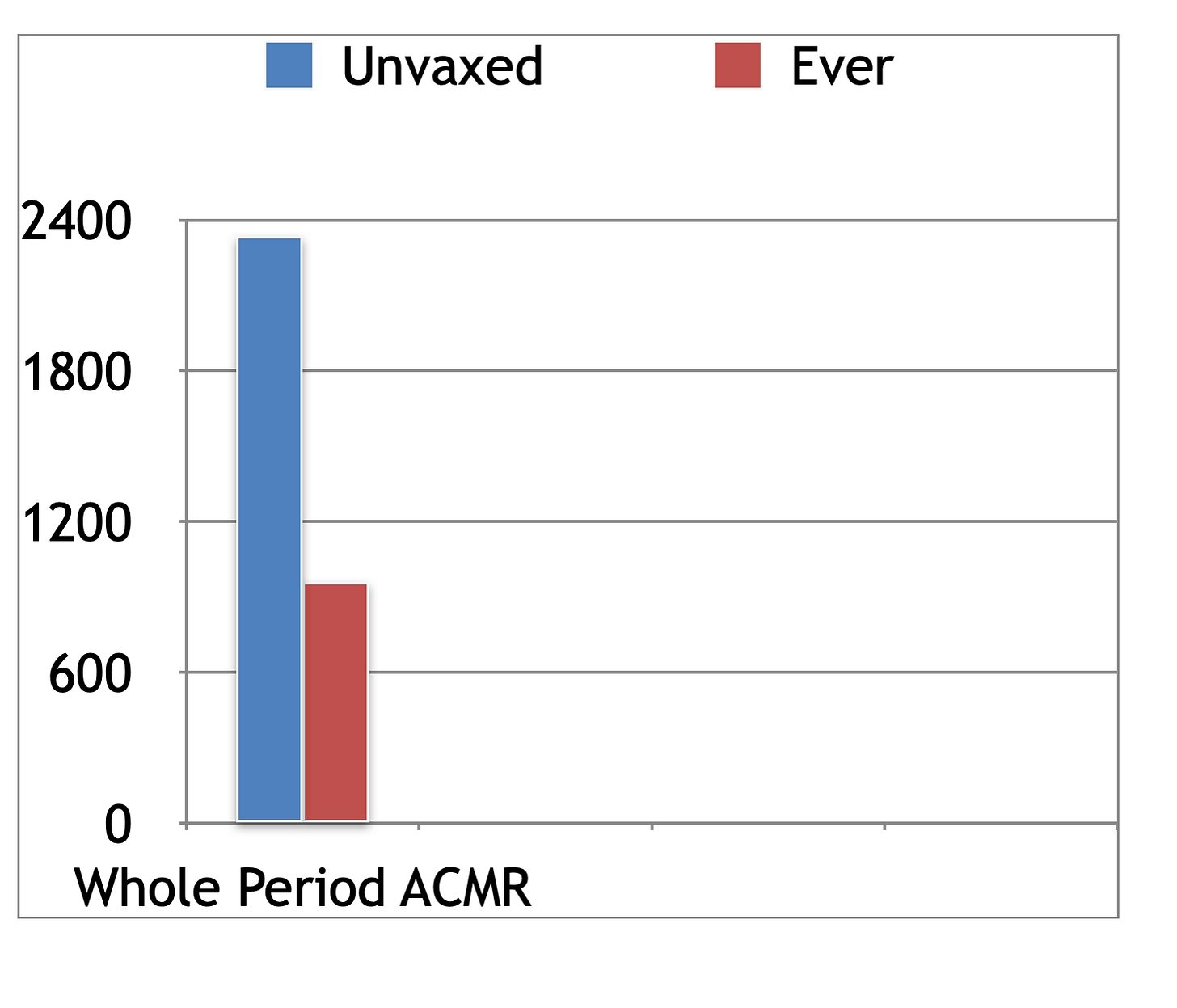
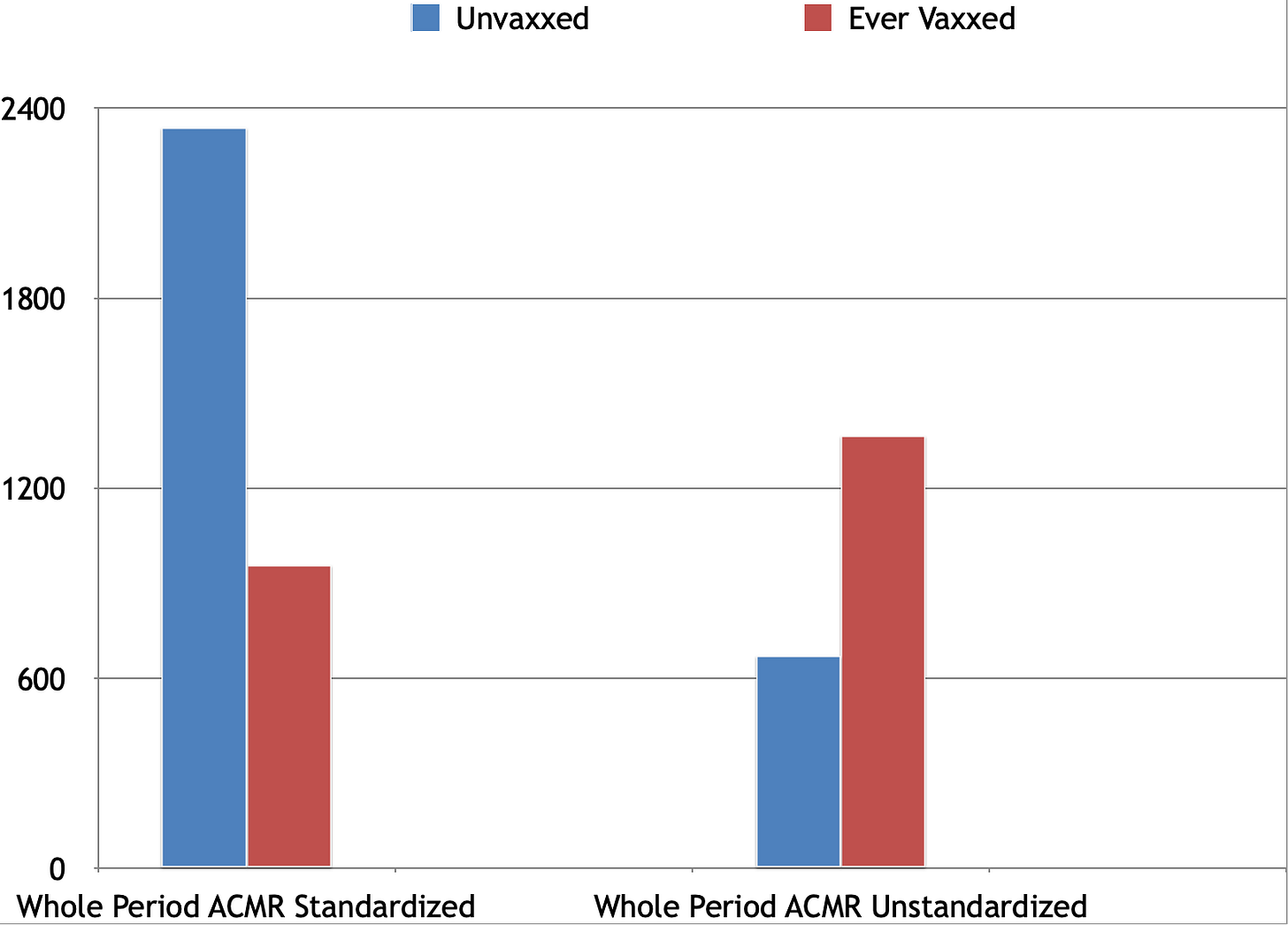
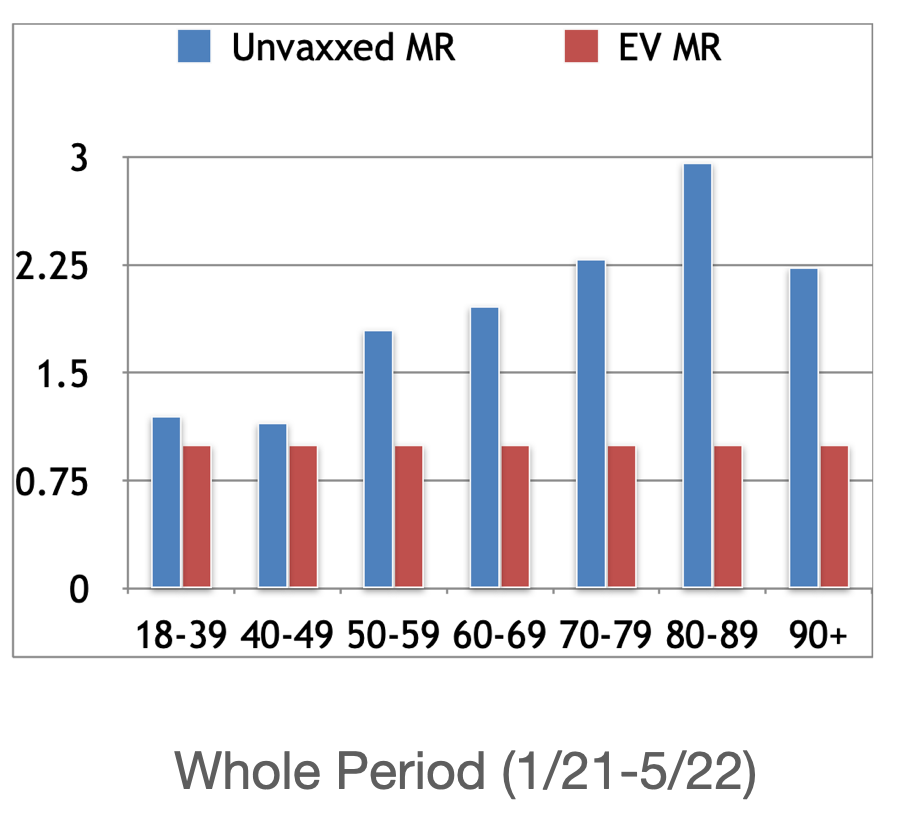


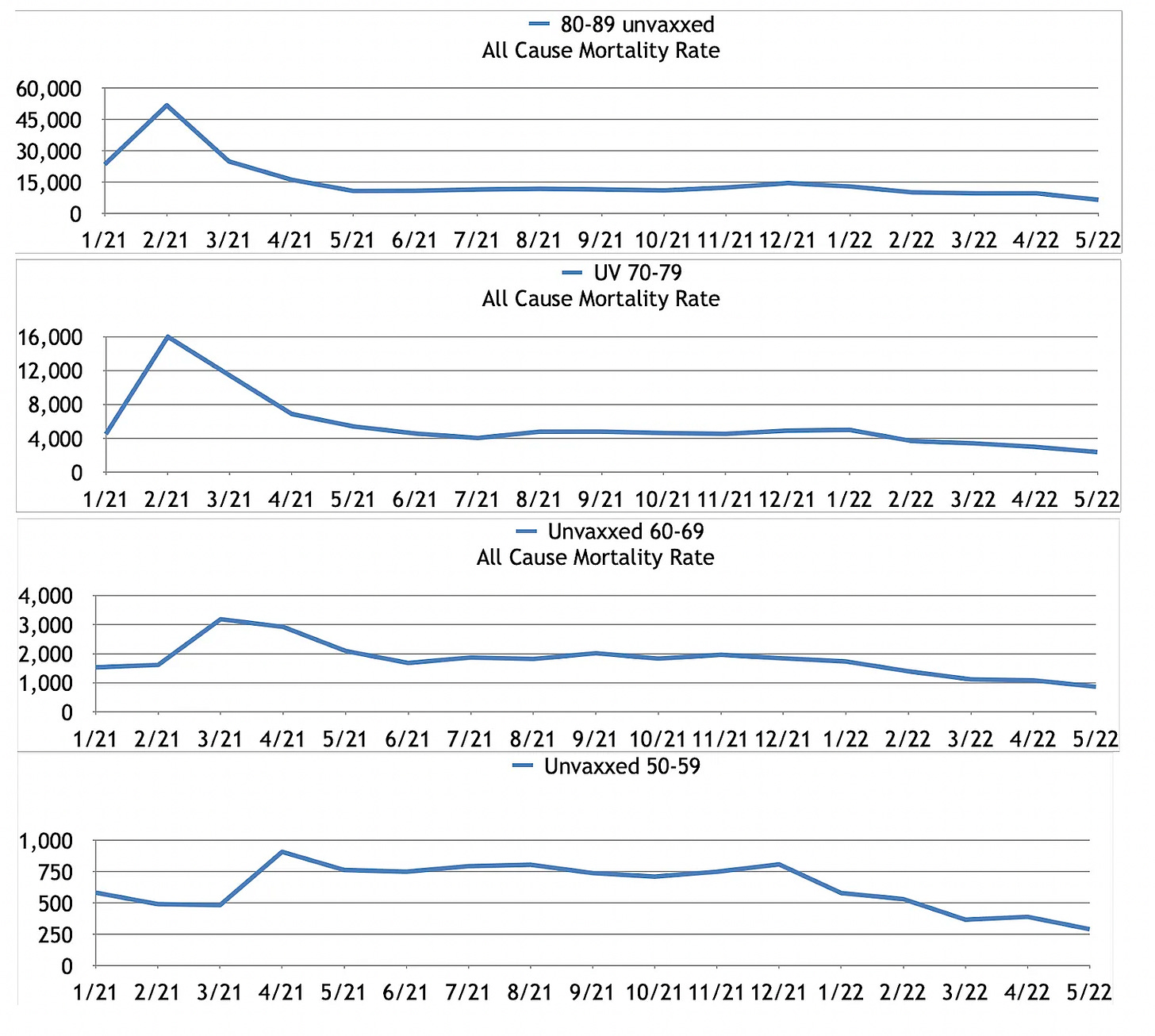
Where fear is involved, the capacity for reason and optimal mental function diminishes. The fear campaign for Covid was huge and for most people, highly effective. Terrify people into thinking the Black Death is upon them and a needle will save them and you will get compliance in at least 70% of the population.
Then when word gets out that perhaps the needle was dangerous, another human instinct kicks in, DENIAL, in order to avoid looking like an idiot for going along with it all. You are Jabbed, you cannot change that, so you must defend it.
The term often thrown at those who dissent science-medical data, correlation is not causation, comes to mind. There was so much misinformation and disinformation and dismissal of what was called anecdotal, and indeed at times, was, that making sense of the Covid 'vaccine'outcomes is difficult. More so because the powers that be and their medical minions, by omission and commission worked so hard to shout the narrative and silence the challenges to the narrative.
As an anecdotal response, I am 75 and my husband 77. We heard the narrative, thought it made no sense, did the research and concluded that how the Covid Jabs were made, and what they were designed to do was far more dangerous than Covid. However, having long questioned all medical procedures, always done our research, avoided medications and avoided real vaccines, we were not a norm.
My four siblings and spouses were all Covid Jabbed, as were many of their children and most of my friends. Our two children and five grandchildren, apart from one who wanted to attend a concert at 16, remained unjabbed. One of our kids was cautious about it all and the other totally opposed for the same reasons that we were. Out of a friends group ranging in age from 40-90, numbering probably 150 people, I would say that 80% were Jabbed, some as many as six times.
What I have observed over the Covid years and Jab outcomes is that the only people I know who have been sick with Covid, often more than once, two to three times, were those who had been Jabbed. The only ones who ended up in hospital had been Jabbed for Covid.
In terms of health, a 45 year old developed Breast Cancer, a 74 year old Rectal Cancer, a 75 year old developed Dementia, a 72 year old developed Parkinson's, a 74 year old developed heart and lung problems; an 88 year old developed early Dementia; a 68 year old had a recurrence of Breast Cancer; an 82 year old developed a rare neurological disease, name forgotten; and probably out of the group, half had frequent respiratory illness, including Covid and various ailments, some requiring urgent surgery.
Of course, given the age group I am mostly talking about, one could say and rightly so, it is a stretch to blame it on the Covid Jabs. At this point I have not seen unexpected Deaths in the group I know and so far, the younger ones, 50 and under, seem to be okay.
I have long suspected that the Covid genetic treatment called a vaccine was sent out in a mixed bag of real and saline to confuse and cover side effects. I may be wrong, but there does seem to be an erratic nature to the side effect picture. Having said that, of course, every human is biologically and physiologically unique and some are more resilient than others.
Keep up the good work because like it or not, the public deserves and needs to know the truth.
The other Fuzz Factor is that the label, UNVACCINATED, was consistently applied to all those who had not had the recommended number of shots, and those who were under two weeks since the latest shot.
So, First Shot is VACCINATED until Second Shot is recommended and then all who had had one shot but not the second were deemed to be UNVACCINATED. And all those who had the second shot were deemed to be UNVACCINATED UNTIL 2 weeks had passed.
Then Third shot, all those who had had only one shot were unvaccinated as were those who had had only two shots, as well as all those who had had Three shots but were under 2 weeks from the time of the Jab.
Then the same thing happened with Fourth, Fifth and Sixth shots which means, since some people eventually clicked that if more and more boosters were said to be needed, clearly the vaccine did not work and so stopped having shots.
Therefore, the unvaccinated group by the time Six shots were recommended would have included millions who had had 1, 2, 3, 4, 5, Covid Jabs. In Australia, People 65 to 74 are recommended boosters every 12 months, so anyone who does not do this would be deemed unvaccinated.
How anyone can call a process like that scientific is beyond me and anyone of sound mind.